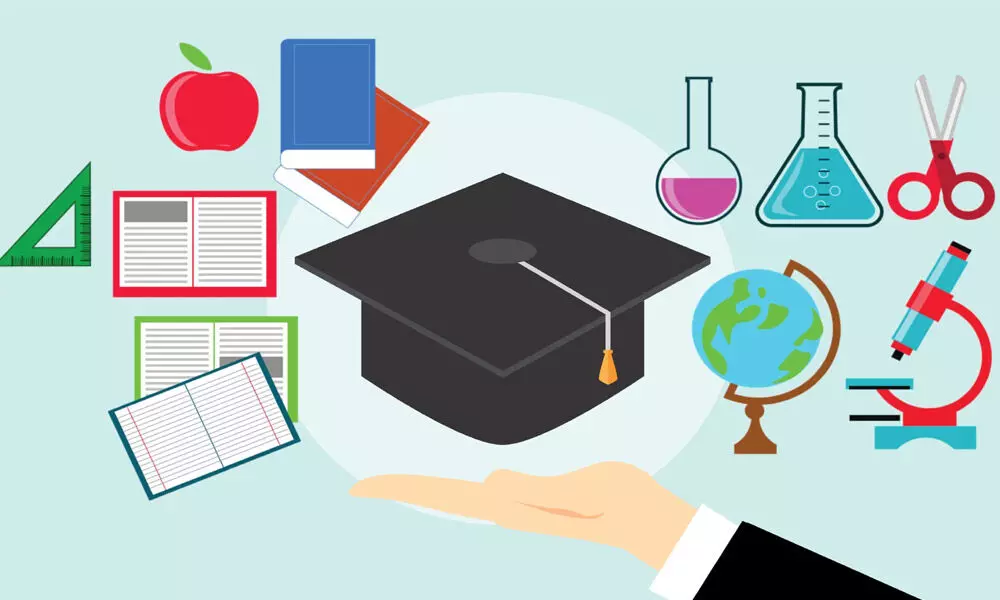Experiential learning: The future of new education

Experiential learning: The future of new education
Global pandemic coronavirus has led multifarious changes in the working of every sector
Global pandemic coronavirus has led multifarious changes in the working of every sector. Pandemic led to closing of education intuitions to prevent the spread of virus therefore new gateway for imparting education emerged like virtual classrooms, a new and innovative concept in India. Global experimentation with remote teaching is the most efficient option available to bridge the education gap. Almost every education institution today has opted for the online mode. Medium of these virtual classes are platforms like Zoom, Google Hangouts, Microsoft Teams and many more. Adapting to this new mode was quiet difficult initially but it is turning out to be an effective mode for students and teachers both and the best alternative option under the circumstances.
This new education mode is certainly the future of new education as it enables to learn wherever you are, uplifting the technical advancement and definitely making education more creative. Here are the top 5 features of experimental mode of learning making it future of new education.
Flexibility
Online education is enabling teacher and the student to set their personal learning pace, adding more flexibility to set class schedule, adding innovative methods to check student's learning. Now the student can take his lecture from anywhere. It is also helping students to improvise time management skills and consequently become more disciplined which apparently helps in maintaining good work-study balance. Unlike traditional means of learning the student can give his assessments online as also avail course material online. There is direct contact between teacher and students which enables both parties to understand and respond in the required way.
Affordability
Online education is more affordable option as compared to offline mode of education as it eliminates a wide range of payment options as the student can pay for the webinars that is relevant to him. Besides, for the academic classes it eliminates commuting costs, course material costs and many more miscellaneous fees. Therefore, there is less monetary investment and the education is more advanced.
Easily accessible
Online education enables studying or teaching from anywhere in the world. That is there is no need of commuting from one place to another or follow any rigid schedule which not only helps to save time, but also helps in saving money. Virtual classroom is available anywhere where an internet connection is available. Online learning helps in eliminating social and physical barriers, i.e. learning from a foreign institution remotely is accessible now. Many skill-based online certificates and courses are also available which are accessible through online modes for better learning.
Career relevant
Learning with the new method of education is more flexible and multi-tasking as students can meet career relevant skills while sitting at home apart from learning from online classes there is more time for students to attain online trainings, pursue skill based online courses, etc. These sources boost up student's résumé making him future ready. E-learning is not only beneficial for students but also for the teachers as it is making teachers more updated to e-teaching techniques.
Enhanced new age technology
Unlike traditional education, learning online is more advanced, as now students and teachers both are becoming more innovative, self-initiators which are helping to discover the undiscovered and setting of new trends. Both are navigating the course lectures, downloading course materials, interacting online, communicating well digitally and making new networks. E-learning allows wide scope of practical and innovative learning. Online education ensures learning more than what is just written in books.
The student can avail study material in the form of video, document, and voice notes etc. It can, therefore, be concluded that virtual education has widened the scope of learning as now the student can learn through various sources, get familiar to digital world. We at Sanskriti University are fully equipped to switch over to hybrid learning mode.
( The author is , Chancellor, Sanskriti University)

